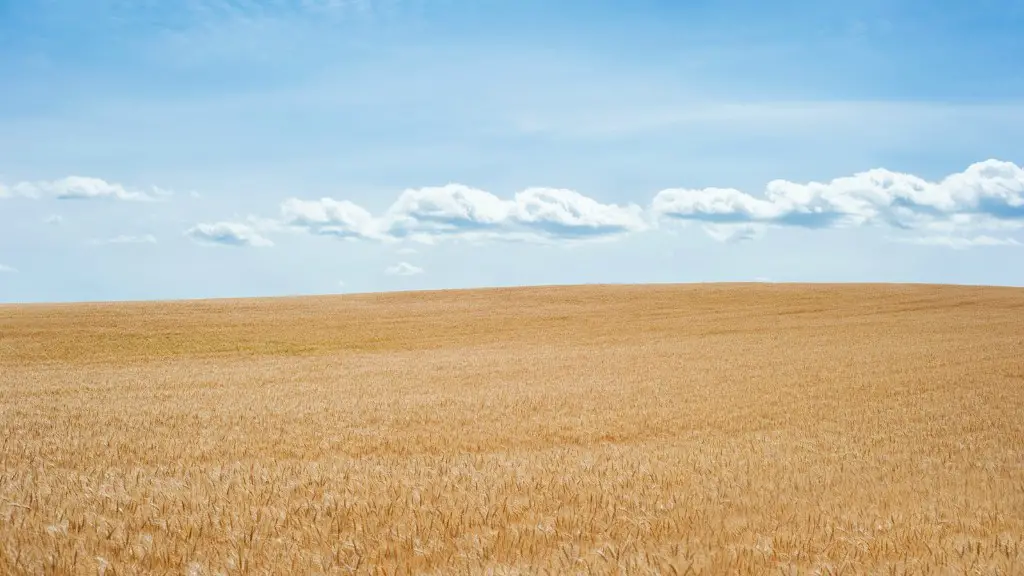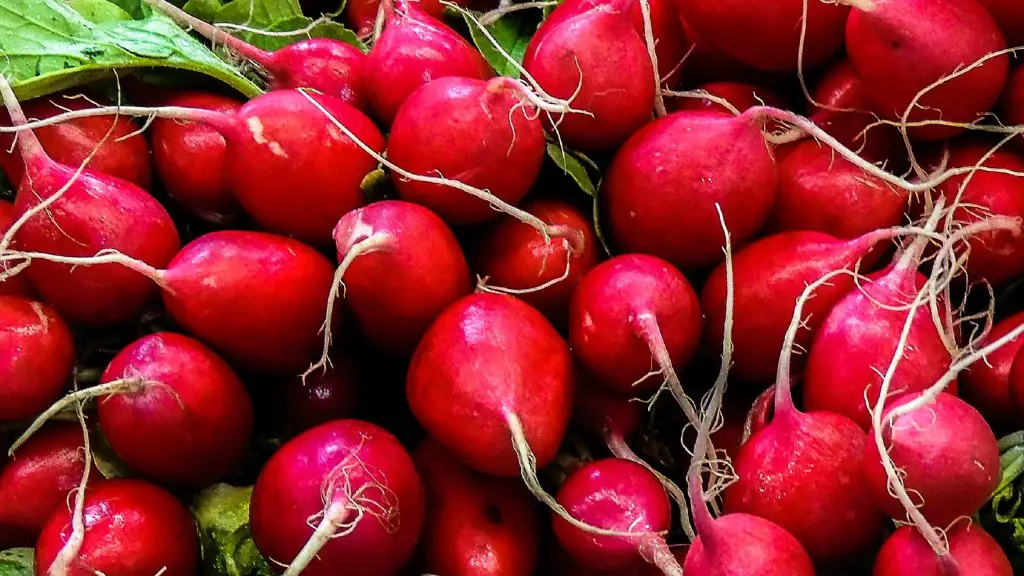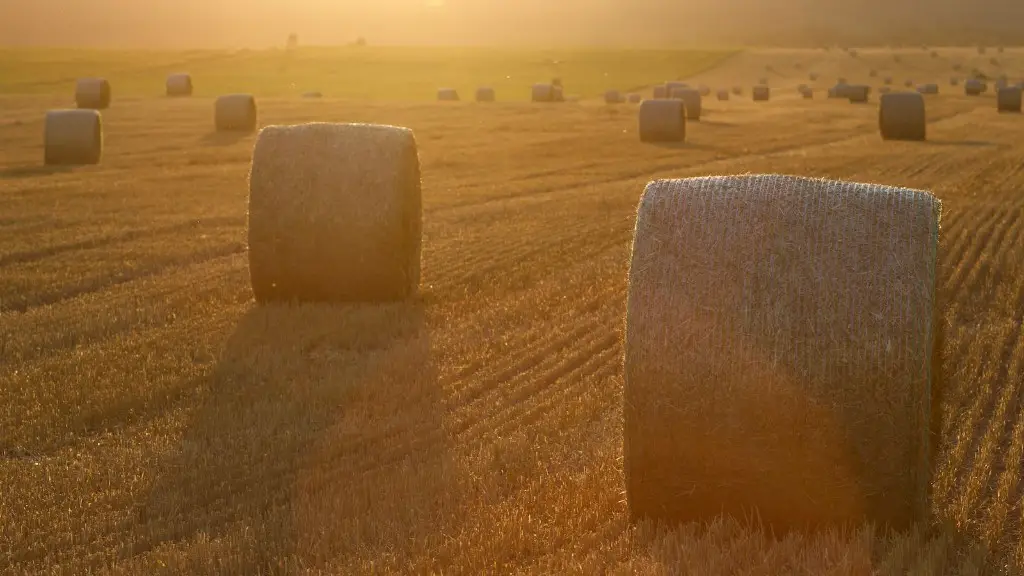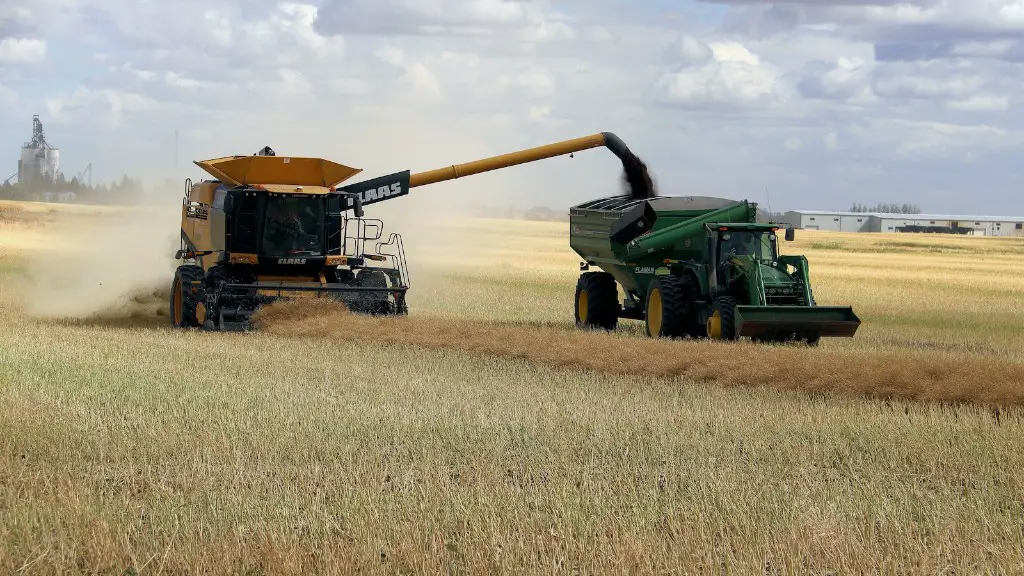Humans depend heavily on the environment to provide them with food and materials, so it’s no surprise that agriculture’s impact on the environment is sizable. Whether you’re talking about disposing of fertilizer and manure, growing genetically modified food, or simply clearing land to make way for a new farm, all of these activities have an environmental cost.
Agriculture is responsible for soil erosion, water contamination, air pollution, and animal habitat loss. Soil erosion happens when soil is removed through wind or water, to the point that it can no longer support agriculture. This is more likely to happen when land is cleared for agriculture and the natural vegetation, which helps anchor it, is gone. This increases the likelihood of land runoff that contaminates waterways.
Air quality is also adversely affected by agricultural activities. Pesticides, herbicides, and other chemicals used in farming can create air pollution, adversely impacting the health of people living nearby. Additionally, animal habitats that have been switched over to farmland have suffered a loss of biodiversity, limiting the available animal species in a certain area.
In addition to environmental costs, agriculture also has benefits. Farming provides a source of sustenance for humans, helping to feed the population and alleviate food insecurity. Growing crops and raising animals (known as husbandry) can also help prevent soil erosion, restore fertility to barren landscapes, and create jobs.
In many ways, agricultural practices have changed for the better over the years. Many farmers now use eco-friendly practices such as irrigation methods, organic fertilizers, and crop rotation. This can help mitigate any negative impacts the environment.
It’s also important to consider the economic aspects of farming. For example, lower food prices mean that more people can access food, while higher prices incentivize farmers to invest more in their land and businesses. World leaders also need to consider the conditions of farmers, such as fair wages, access to resources, and food security.
Genetically Modified Organisms and Salmon Farming
The use of genetically modified organisms (GMOs) has been widely criticized in recent years due to environmental concerns. GMOs are altered organisms that have been designed to have some traits that make them more resistant to pests, disease, and to produce higher yields and better quality produce.
While these traits can reduce the need for pesticides and reduce the costs of food production, there’s also concern about the long-term impact of tampering with natural organisms in ecosystems. GMOs may also lead to a decrease in biodiversity, since they’re essentially competing with traditional plants or animals.
Another major environmental concern related to agriculture is fish farming, also known as aquaculture. Salmon are a popular variety of fish farmed, but the process has raised concerns about how these activities can affect the environment.
For example, farmed salmon may escape into natural ecosystems, competing with wild salmon and disrupting the natural food chain. Fish release excrement and other waste into the water, which can lead to soil and water pollution. Additionally, aquaculture operations require large amounts of feed, which can adversely impact fish populations.
In order to mitigate these impacts, some operators use closed aquaculture systems to separate farmed fish from the natural environment. This technique reduces the risk of disease transfer and limits the spread of invasive species. In addition, it also helps keep excrement and other waste contained.
The Role of Government Regulations
Government regulations have become increasingly important in helping to protect the environment from negative agricultural impacts. Laws and regulations can be used to regulate the use of pesticides and fertilizers, to control land usage, and to guard against animal cruelty. In some cases, farms may even be government-owned and operated, with a focus on sustainability and environmental protection.
Regulation isn’t perfect, however, and there are cases of regulations not being followed or enforced. Companies and farmers may also find ways to bypass legal loopholes, leading to environmental abuses. It’s also difficult to enforce regulations consistently across regions, as local agriculture can be subject to varying conditions.
For the most part, however, government regulations and oversight have gone a long way to reducing the environmental impact of agriculture. By keeping farmers and companies accountable, governments can ensure that only acceptable practices are taking place.
Technological Innovations in Agriculture
Technology has had a major impact on agriculture, from mechanical tools in the early days to the rise of genetically modified organisms and sophisticated farm management software. Farms are now able to use data-driven decision-making to optimize their operations, while sensors can detect environmental changes and provide feedback to farmers.
GPS technology can also help in monitoring soil conditions, water levels, and other environmental factors. It can also be used to create “smart fields”, where data is used to more efficiently manage field irrigation, harvesting, and fertilization.
Robotics and drones are also beginning to play an increasingly important role in agriculture. Drones can be used to monitor crop health, while robotic tractors can be used in a variety of settings, from tilling to planting and harvesting.
These technologies are not without their drawbacks, however. They can be expensive to buy and maintain, and there’s also the risk of them becoming obsolete due to rapid advances in the industry. Additionally, automation raises the risk of job loss for human workers.
Sustainable Farming Practices
Sustainable farming practices are key to reducing the environmental footprint of agriculture. Practices such as crop rotation and integrated pest management can help limit the need for pesticides and reduce soil erosion. Farms can also conserve water and energy through efficient irrigation and the use of renewable energy sources.
Composting can also help to reduce waste and return nutrients to the soil. And by diversifying the crops grown, farmers can reduce the risk of a single disaster wiping out an entire crop.
Farmers have also started to experiment with agroforestry, which combines trees and crops in the same plot. By doing this, they can improve soil quality, reduce erosion, and provide more habitats for animals.
In recent years, many farmers have started to practice regenerative agriculture. This involves using practices such as crop rotation, no-till farming, cover crops, and other methods to increase soil fertility and reduce erosion.
Sustainable agriculture can also take shape in the form of permaculture and permaculture design. This is a system of farming that focuses on using natural elements in harmony with one another and with the environment.
Organic farming is another sustainable practice, as it avoids the use of chemical fertilizers and pesticides. However, it can be expensive, and is not suitable for all types of crops.
The Future of Sustainable Agriculture
It’s clear that agriculture has an environmental cost, but the good news is that sustainable practices are available to help mitigate those impacts. Governments, farmers, and the general public all have a role to play in ensuring that our food production methods are as efficient and environmentally-friendly as possible.
In the future, there’s likely to be increasing innovation in sustainable agriculture. This could include the use of robots, microorganisms, and other technologies to improve efficiency, reduce waste, and better protect the environment.
As the world population continues to grow, the pressure on the environment will only increase. It will be crucial for farmers and companies to work together to balance food production with environmental protection.
The future will also likely see a greater emphasis on education and awareness. More budgets will be allocated to research and training around sustainable agriculture, while governments, environmental organizations, and food producers should all work to spread information about the importance of sustainable farming practices.





